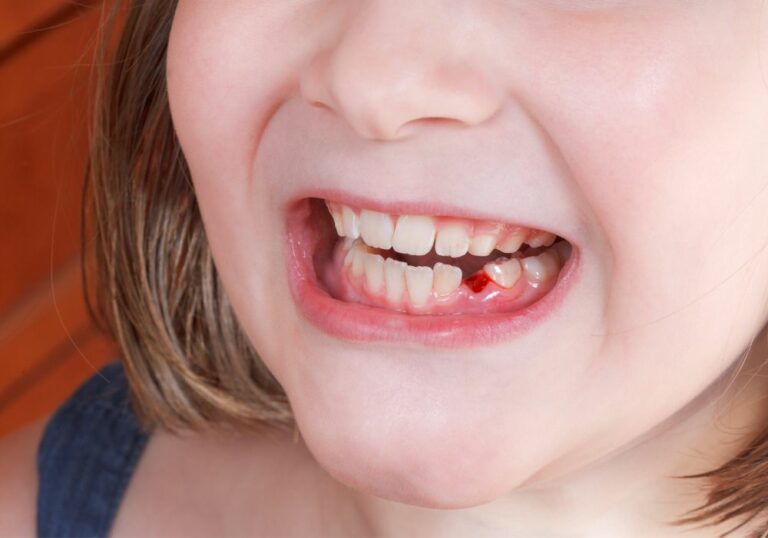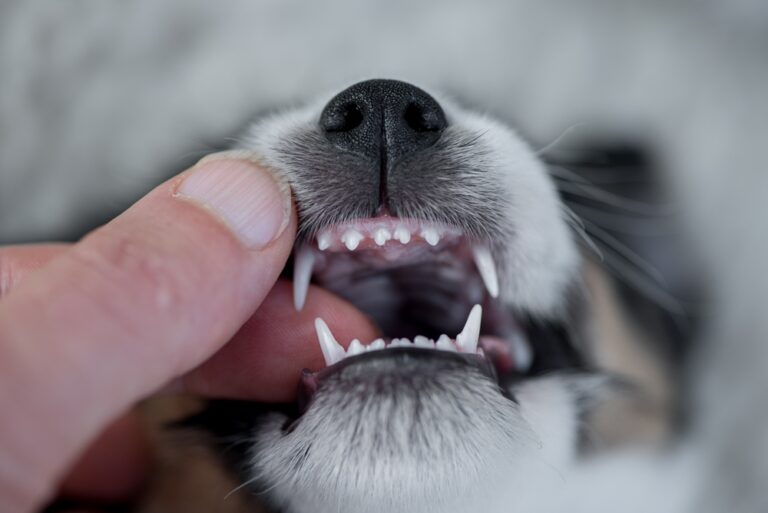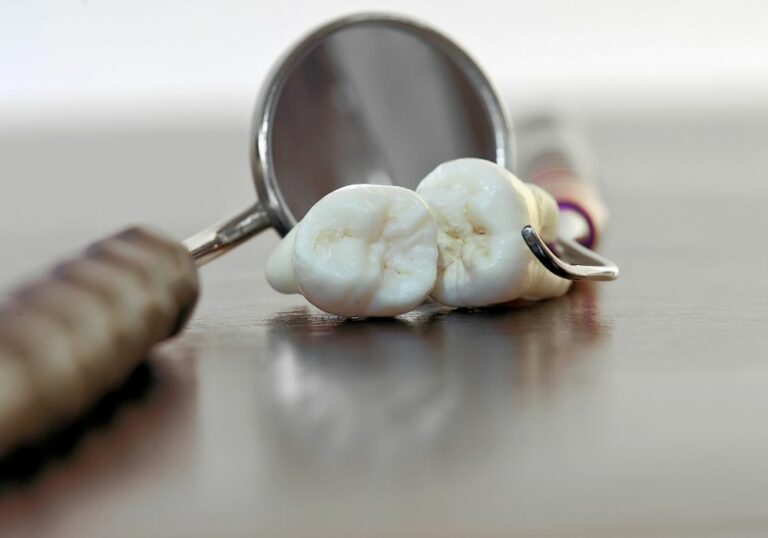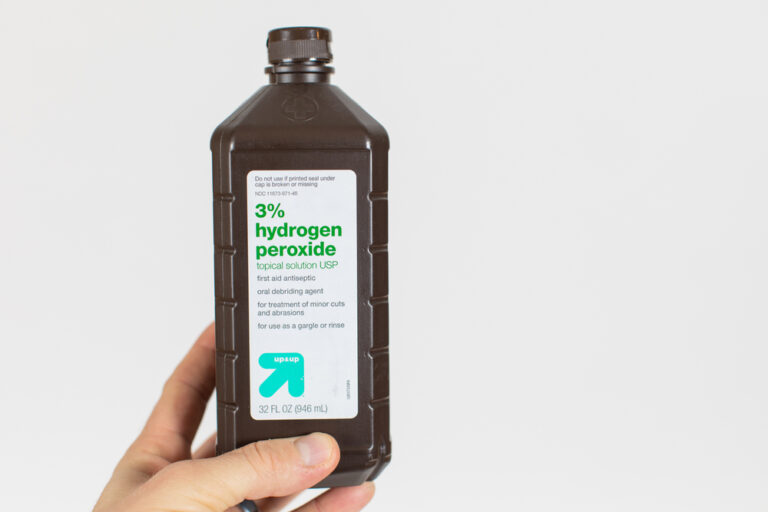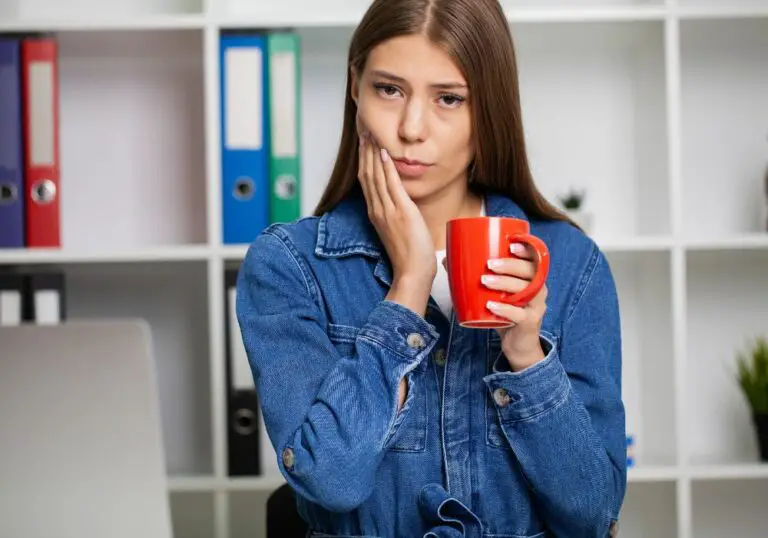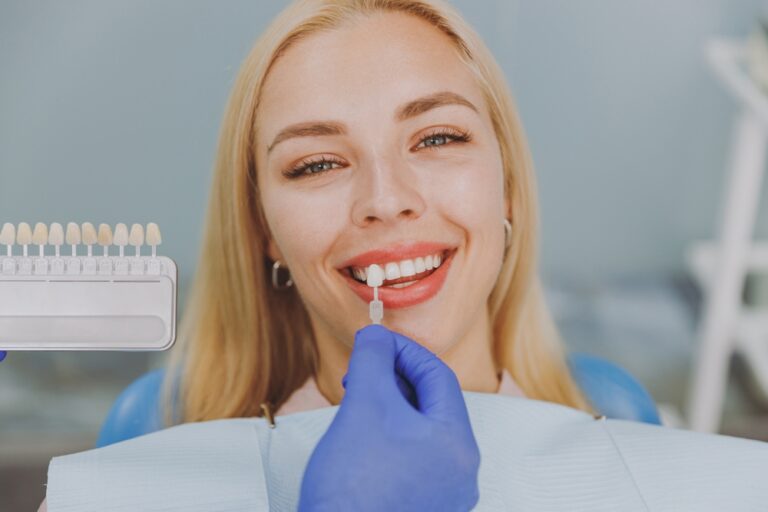Common causes of appetite loss and teeth grinding in rabbits
Losing interest in food and grinding teeth can indicate that your rabbit is unwell. Here are some of the most common reasons why rabbits stop eating and grind their teeth:
GI stasis
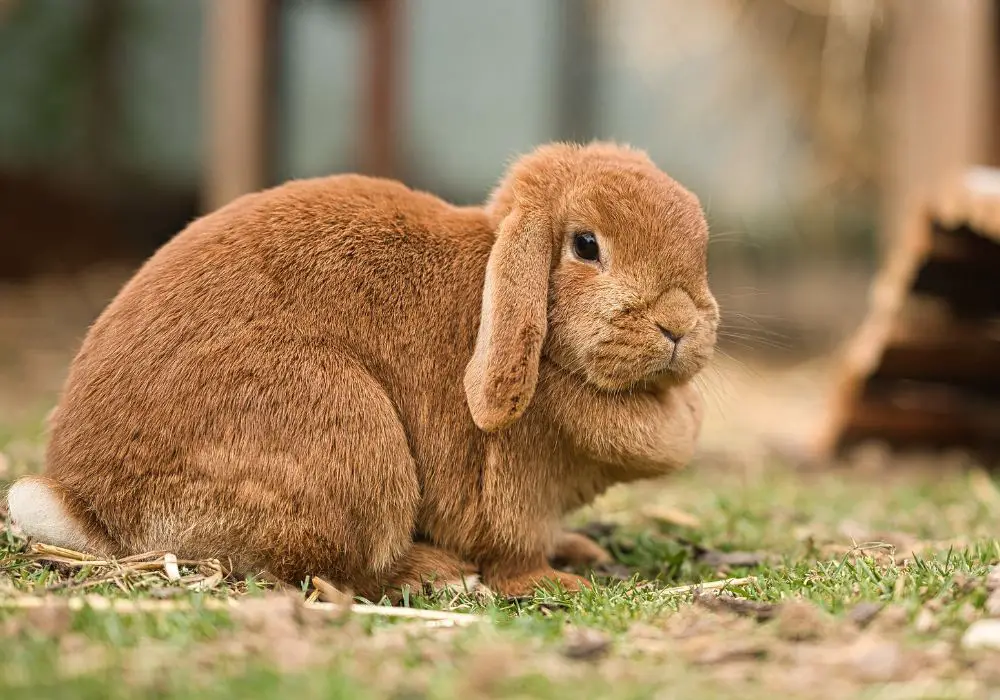
Gastrointestinal (GI) stasis, also known as ileus, is one of the leading causes of poor appetite and teeth grinding in rabbits. This dangerous condition occurs when the normal movement of the gastrointestinal tract slows or stops completely. Food and hair accumulate inside the stomach or intestines, causing a blockage.
Rabbits rely on the constant motion of their digestive tract to keep food moving through the system. When peristalsis stops, bacteria quickly multiply and produce gas, causing uncomfortable bloating. The stomach contents may also harden into a mass, making it even more difficult to pass.
GI stasis causes significant pain, nausea, and loss of appetite. Rabbits experiencing GI stasis often grind their teeth due to discomfort. They may stop eating entirely because the blockage prevents them from digesting food properly.
Dental disease
Dental issues like tooth root abscesses, tooth decay, and molar spurs can make it very painful for a rabbit to chew and eat. Rabbits use their constantly growing teeth to grind down food as part of the digestion process. When their teeth hurt, they tend to avoid using them by refusing to eat.
Tooth pain can also cause bruxism, which is the medical term for compulsive teeth grinding when no food is present. The rabbit grinds its teeth in an effort to relieve discomfort, similar to teeth clenching and grinding due to dental issues in humans.
Infections
Bacterial, viral, or fungal infections can reduce a rabbit’s appetite and cause tooth grinding. The immune system deploys white blood cells to fight the infection, creating inflammation. Cytokines, pyrogens, and prostaglandins secreted as part of the inflammatory response can suppress appetite and cause nausea.
An infection may also raise the rabbit’s body temperature, resulting in discomfort and pain that leads to bruxism. Common examples include respiratory infections, abscesses, and skin infections. Parasites like coccidiosis, which affects the intestines, are another possible cause.
Stress
Stress causes rabbits to produce higher levels of corticosteroids like cortisol. These hormones can negatively impact digestion, gut mobility, and appetite. The presence of predators, loud noises, and changes to the rabbit’s environment are common stress triggers.
Chronic stress may cause bruxism as the rabbit grinds its teeth in response to anxiety or frustration. Stress can also exacerbate underlying dental issues and GI stasis.
Cancer
Although not as common as the previous causes, cancers affecting the head and neck may also cause difficulty eating. Tumors in the mouth, teeth roots, or throat can directly interfere with the mechanics of chewing and swallowing. Cancer also increases inflammation, depressing the appetite control center in the brain.
Diagnosing the underlying cause
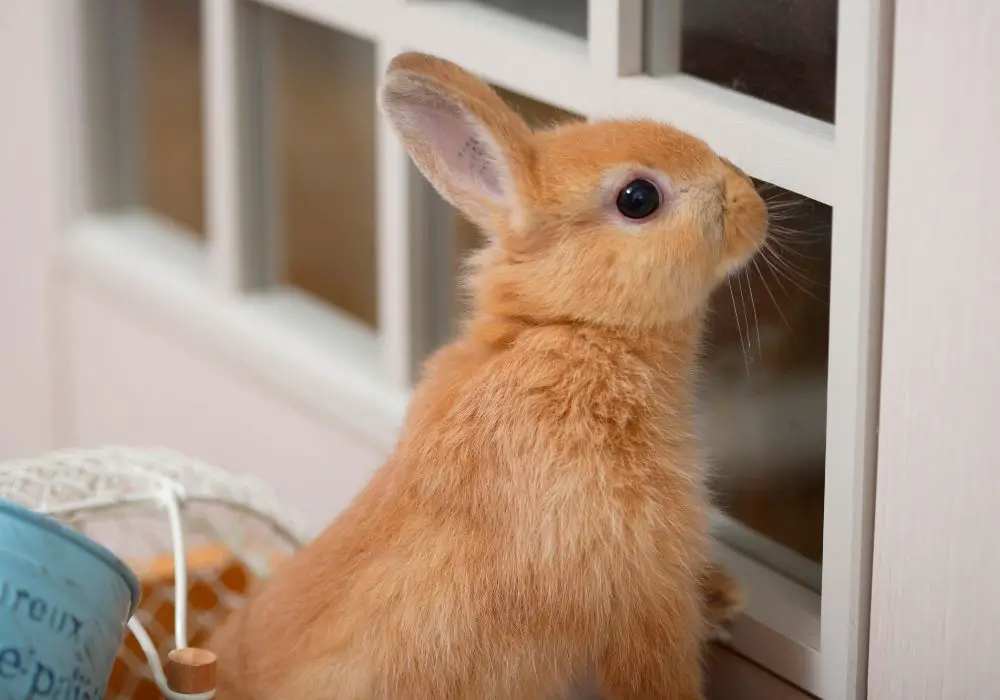
Pinpointing the exact reason your rabbit is not eating and grinding its teeth requires an exam by an experienced rabbit veterinarian. They will ask about your pet’s medical history and perform diagnostic tests.
Physical examination
The vet will check your rabbit’s vital signs, feel its abdomen for obstructions or gas, examine its mouth, nose and ears, and assess its overall condition. Signs like dehydration, fever, or weight loss provide important clues.
Blood work
Blood tests can identify elevated white blood cell counts signaling infection or inflammation. Other abnormalities may point to kidney issues, cancer, or hormonal disorders.
Oral exam
The vet will look closely at your rabbit’s teeth and oral cavity. Signs of infection, abnormal wear, spurs, malocclusion, and other dental issues will be evaluated.
Radiographs
X-rays of the skull, mouth, and abdomen can reveal dental disease, foreign objects, bladder stones, tumors, and changes in organ size. Contrast studies using barium may highlight obstructions.
Biopsies
Biopsy samples of lumps or oral lesions will be analyzed by a veterinary pathologist. Cytology of ear canal exudate can diagnose ear infections.
Ultrasound
An abdominal ultrasound uses sound waves to create images of the stomach, intestines, liver, and other organs. It can identify masses, fluid accumulation and bladder stones.
Treatment and home care
Treatment depends on the diagnosed cause of your rabbit’s poor appetite and teeth grinding. Your vet will outline the recommended treatment plan and follow up care.
Treating GI stasis
- Pain medication like buprenorphine or meloxicam
- Subcutaneous fluids to prevent dehydration
- Assist feeding with Recovery formula by syringe or tube
- Prokinetics to stimulate gut motility, e.g. cisapride or metoclopramide
- Gas relief medications like simethicone
- Addressing the underlying cause, e.g. too much starch, stress, lack of exercise
At home care for GI stasis includes:
- Keeping your rabbit hydrated
- Giving any prescribed medications
- Assist feeding until appetite returns
- Encouraging exercise after recovery
- Limiting pellets and starchy vegetables
- Providing plenty of hay as fiber source
Treating dental disease
Options for managing dental issues include:
- Tooth trimming and filing to remove spurs and sharp points
- Tooth extraction if severely damaged or infected
- Antibiotics for tooth root abscess
- Pain medication
- Assist feeding during recovery
You can support your rabbit’s dental health at home through:
- Offering plenty of abrasive hay to grind down teeth
- Avoiding high-sugar foods
- Scheduling regular dental checkups
Treating infections
Your vet will prescribe appropriate antibiotics, antifungals, or antiparasitic medication depending on the type of infection diagnosed. Supportive care like subcutaneous fluids and assist feeding may be needed if your rabbit’s appetite remains poor. At home, keep your rabbit’s environment clean to prevent reinfection.
Reducing stress
To minimize anxiety and stress:
- Avoid sudden loud noises or disruptions to routine
- Do not change cages or pens abruptly
- Provide stimulating toys and activities
- Use pheromone diffusers or sprays
- Consider anti-anxiety medication if stress is chronic
Make sure your rabbit’s basic needs for space, social interaction, enrichment, and hiding spots are met. Monitor for signs of pain, hunger, or loneliness that may be exacerbating stress.
Treating cancer
Treatment options for cancers include:
- Surgery to remove accessible tumors
- Radiation therapy for some oral cancers
- Chemotherapy drugs in select cases
- Medications to control pain and secondary issues
- Assist feeding and hydration as needed
Palliative hospice care at home can help keep your rabbit comfortable when medical treatment is not advised. Your vet can guide you in providing gentle handling, soft foods, hydration, and pain relief.
Nutritional support for recovery
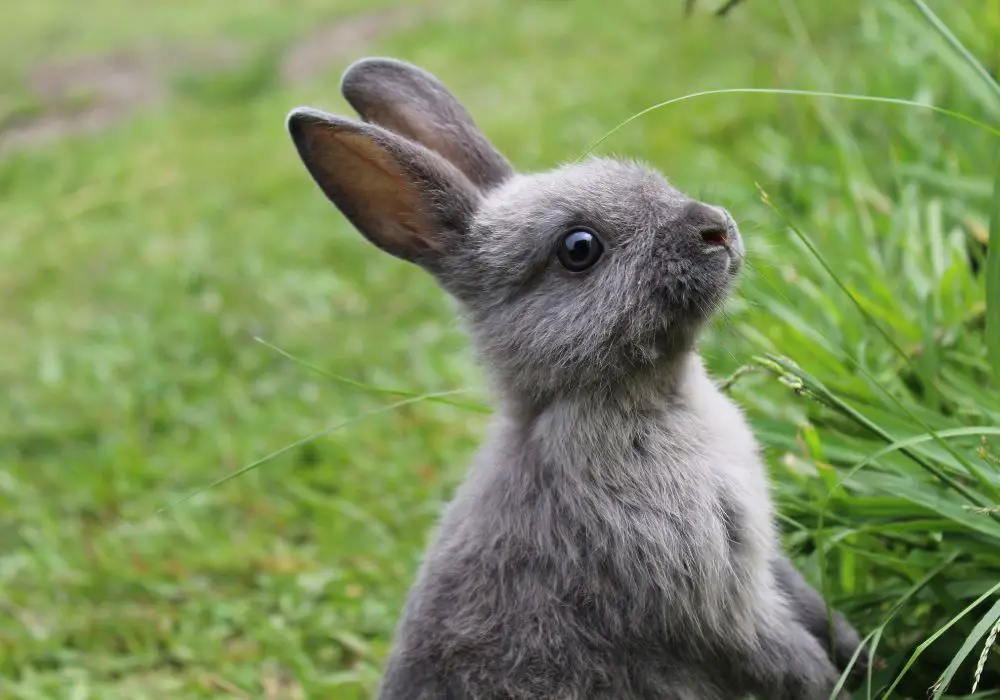
Proper nutrition is vital for supporting your rabbit’s recovery and return of normal appetite.
Your vet may prescribe a specialized recovery food formula to restore gut function and stimulate appetite. Offer small portions frequently to get your rabbit eating again.
As appetite improves, reintroduce normal foods gradually. Allow 24 hours or more between new additions to check for sensitivity or diarrhea. Persistent weight loss requires an exam to check for underlying illness.
Preventing recurrence
To help prevent future episodes of appetite loss and teeth grinding:
- Schedule biannual vet exams and prompt care for new symptoms
- Provide unlimited grass hay
- Use proper litter box hygiene
- Groom regularly to prevent fur ingestion
- Avoid sudden diet changes
- Reduce stress through a stable environment and routine
Monitor your rabbit’s food intake, poop production, and chewing motions daily. Catching problems early improves the chances of a quick recovery.
Frequently Asked Questions
Why is my rabbit not eating its cecotropes?
Cecotropes are soft, green, nutrient-rich fecal pellets that rabbits normally eat directly from their anus. Rabbits on a balanced diet produce cecotropes to recycle vitamins synthesized by gut bacteria.
Reasons for leaving cecotropes uneaten include:
- Dental pain making chewing difficult
- Soreness from diarrhea
- Obesity or musculoskeletal issues limiting mobility
- Stress or unfamiliar surroundings
- Antibiotics altering gut bacteria
Check with your vet, as uneaten cecotropes can cause bacterial imbalances. Offering fresh greens may stimulate appetite for cecotropes.
Is teeth grinding always a problem?
Some amount of teeth grinding, called bruxing, is normal for a healthy rabbit. Light grinding while grooming or contentedly relaxing is not a concern.
Seek veterinary advice if grinding seems painful, occurs when no food is present, or is accompanied by changing or worsening symptoms. Frequent bruxism can lead to overgrown teeth and dental disease.
Can I give my rabbit critical care food?
Critical care formulas for herbivores provide complete nutrition in a paste or powder made for assist feeding sick rabbits. The high calorie, easy to digest formulas help support recovery.
Only use these products under your vet’s guidance. Incorrect dosing or composition can cause diarrhea. Check labels for formula specifically formulated for rabbits vs other animals.
What temperature is too cold for a house rabbit?
Indoor rabbits tolerate cooler temperatures from around 60-75°F (15-24°C). drafts, moisture, and contact with cold surfaces increase chill risk. Move cages off floors and provide hide boxes.
Below 50°F (10°C), rabbits may suffer hypothermia. Newborns and unwell rabbits are most vulnerable. Consider a space heater for the rabbit’s room in cold weather.
Can rabbits die from not eating?
Yes, rabbits can die from appetite loss if the underlying cause goes untreated. Rabbits need to eat frequently to keep their digestive system functioning.
Intestinal stasis and bacterial imbalance can occur within 12-24 hours of decreased eating. These can be fatal without veterinary intervention. All cases of appetite loss lasting over 12 hours need prompt vet diagnosis and care.

